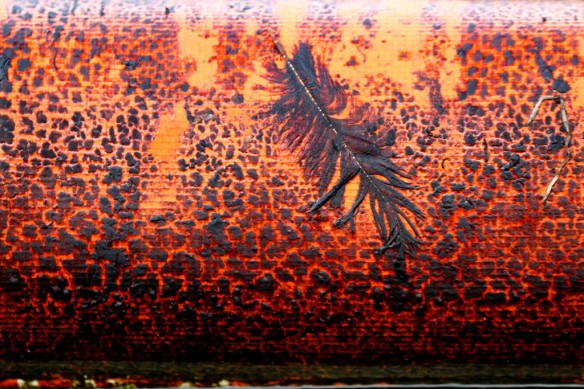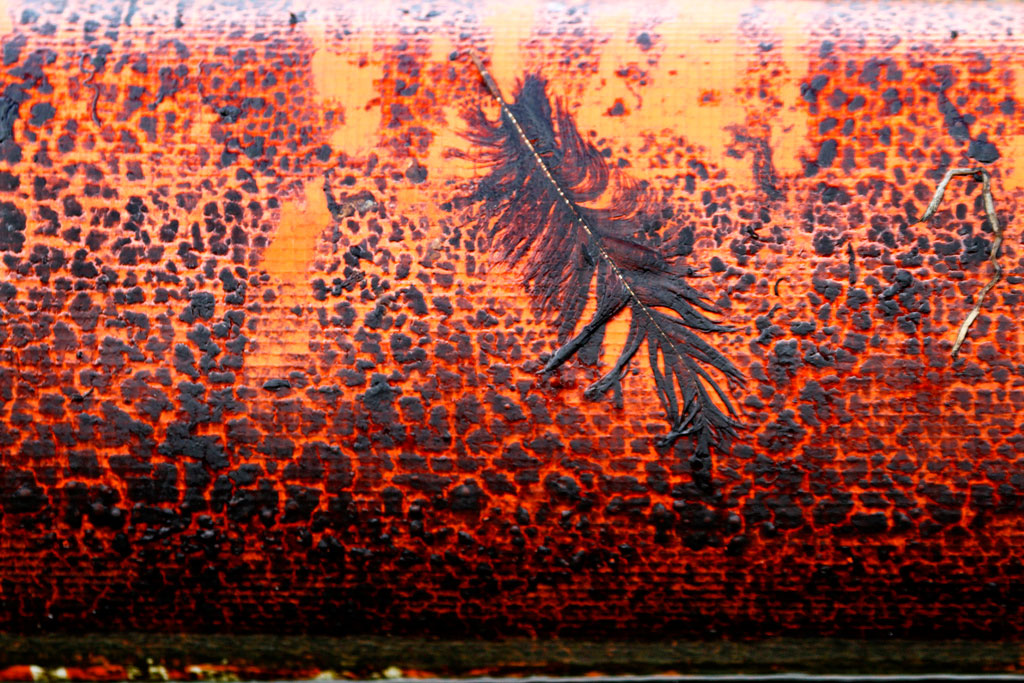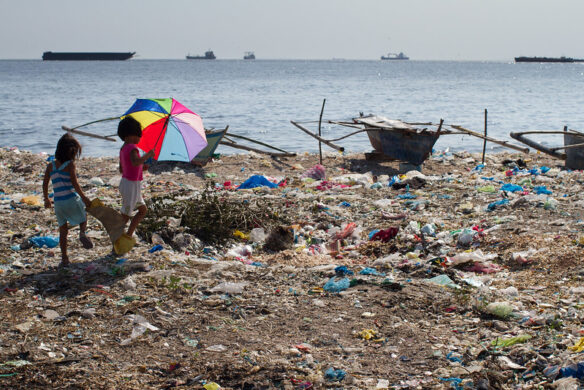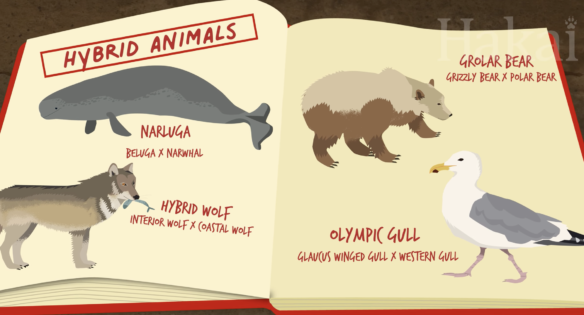
Feather on oiled boom. Captions And Photo source: ©© Lance Cheung
Excerpts;
Five years later, NRDC looks back on the people and places that endured the worst of the disaster, and whose lives continue to be harmed by its impact—and the ongoing blight of the fossil-fuel industry in their waters and on their shores.
The nation’s costly and dangerous dependence on fossil fuel continues to endanger the lives of U.S. workers, the health of our waters, the lifeblood of coastal economies, and the survival of wildlife. There is a better way—putting necessary safeguards in place while also converting to clean energy sources that can’t spill or run dry…
Is Gulf Oil Spill’s Damage Over or Still Unfolding? National Geographic (04-15-2015)
Oil Dispersant Used in Gulf Oil Spill Causes Lung and Gill Injuries to Humans and Aquatic Animals, University of Alabama at Birmingham (04-06-2015)
New research suggests that Corexit EC9500A, an oil-dispersal agent widely used in the Gulf of Mexico following the Deepwater Horizon oil spill, contributes to damage to epithelium cells within the lungs of humans and gills of marine creatures…
Why U.S. East Coast Should Stay Off-Limits to Oil Drilling, Yale E360 (02-28-2015)
It’s not just the potential for a catastrophic spill that makes the new proposal to open Atlantic Ocean waters to oil exploration such a bad idea. What’s worse is the cumulative impact on coastal ecosystems that an active oil industry would bring…









